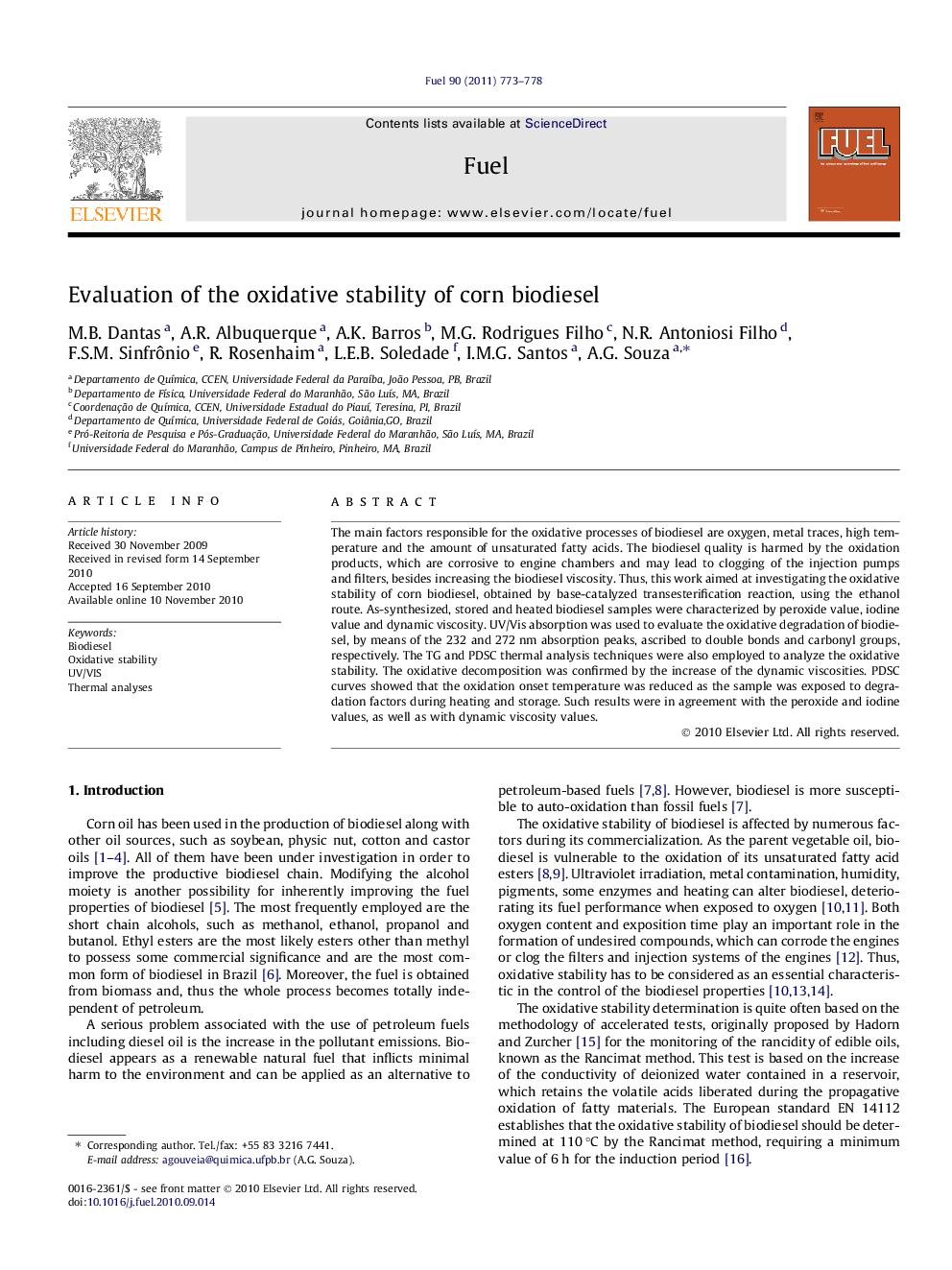| Article ID | Journal | Published Year | Pages | File Type |
|---|---|---|---|---|
| 206668 | Fuel | 2011 | 6 Pages |
The main factors responsible for the oxidative processes of biodiesel are oxygen, metal traces, high temperature and the amount of unsaturated fatty acids. The biodiesel quality is harmed by the oxidation products, which are corrosive to engine chambers and may lead to clogging of the injection pumps and filters, besides increasing the biodiesel viscosity. Thus, this work aimed at investigating the oxidative stability of corn biodiesel, obtained by base-catalyzed transesterification reaction, using the ethanol route. As-synthesized, stored and heated biodiesel samples were characterized by peroxide value, iodine value and dynamic viscosity. UV/Vis absorption was used to evaluate the oxidative degradation of biodiesel, by means of the 232 and 272 nm absorption peaks, ascribed to double bonds and carbonyl groups, respectively. The TG and PDSC thermal analysis techniques were also employed to analyze the oxidative stability. The oxidative decomposition was confirmed by the increase of the dynamic viscosities. PDSC curves showed that the oxidation onset temperature was reduced as the sample was exposed to degradation factors during heating and storage. Such results were in agreement with the peroxide and iodine values, as well as with dynamic viscosity values.
